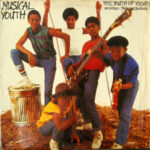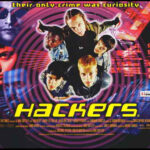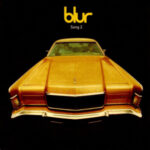 Romeo Void’s 1982 track “Never Say Never” stands as one of the most iconic and provocative songs of the post-punk era. With its infectious bassline, confrontational lyrics, and danceable groove, the track encapsulates the rebellious and boundary-pushing spirit of early 1980s alternative music. This article delves into the song’s creation, cultural impact, and enduring legacy as a staple of post-punk and new wave music.
Romeo Void’s 1982 track “Never Say Never” stands as one of the most iconic and provocative songs of the post-punk era. With its infectious bassline, confrontational lyrics, and danceable groove, the track encapsulates the rebellious and boundary-pushing spirit of early 1980s alternative music. This article delves into the song’s creation, cultural impact, and enduring legacy as a staple of post-punk and new wave music.
Romeo Void: A Unique Voice in Post-Punk
Romeo Void emerged in San Francisco’s vibrant punk and new wave scene in the late 1970s. Formed by vocalist Debora Iyall, guitarist Peter Woods, bassist Frank Zincavage, and saxophonist Benjamin Bossi, the band blended post-punk’s raw energy with the melodic sensibilities of new wave. Their incorporation of saxophone added a jazzy, avant-garde dimension that set them apart from their peers.
While their debut album, It’s a Condition (1981), received critical acclaim, it was the release of their EP Benefactor in 1982 that catapulted them into wider recognition. The standout track “Never Say Never” became the band’s defining moment, cementing their place in music history.
The Making of “Never Say Never”
The creation of “Never Say Never” was a collaborative effort that showcased Romeo Void’s knack for crafting edgy yet accessible music. Frank Zincavage’s hypnotic bassline anchors the track, providing a steady groove that drives the song forward. Peter Woods’ angular guitar riffs and Benjamin Bossi’s searing saxophone interjections create a soundscape that is both jagged and seductive.
At the heart of the song is Debora Iyall’s commanding vocal performance. With her deadpan delivery and cutting lyrics, Iyall conveys a mix of confidence, defiance, and vulnerability. The chorus, featuring the now-famous line “I might like you better if we slept together,” is both provocative and confrontational, challenging conventional notions of romance and gender dynamics.
The song’s production, helmed by Ric Ocasek of The Cars, added polish without diluting its raw edge. Ocasek’s influence can be heard in the track’s crisp arrangement and dynamic balance, which allowed each element of the song to shine.
Lyrical Themes and Provocative Content
The lyrics of “Never Say Never” are unabashedly bold, addressing themes of desire, power, and autonomy. Iyall’s stark delivery of the chorus reflects a refusal to conform to traditional gender roles and expectations. The song’s frank exploration of sexual agency was groundbreaking for its time, particularly coming from a female perspective.
Lines like “I might like you better if we slept together” and “I’m in control” underscore a narrative of empowerment and self-determination. Rather than adhering to societal norms, Iyall’s lyrics challenge listeners to reconsider their assumptions about relationships and intimacy.
The song’s unapologetic attitude resonated with listeners who identified with its defiance of conventions. For many, “Never Say Never” became an anthem of liberation, reflecting the changing attitudes of the early 1980s.
Cultural Impact and Reception
Upon its release, “Never Say Never” received widespread acclaim for its innovative sound and daring lyrics. The track quickly became a staple of alternative and college radio, earning the band a dedicated following. Its popularity was further bolstered by its inclusion in influential compilations and soundtracks, such as the film Reckless (1984).
The song’s music video, featuring the band performing in a stark, industrial setting, complemented its edgy aesthetic. Directed by Bernard Rose, the video captured the spirit of the song, with Iyall’s commanding presence front and center. The visual elements of the video, combined with the song’s provocative lyrics, solidified its status as a cultural touchstone.
Critics praised “Never Say Never” for its originality and impact. Publications like Rolling Stone and The Village Voice highlighted its genre-defying qualities and its role in pushing the boundaries of mainstream music. The song’s influence extended beyond the post-punk scene, inspiring artists across a range of genres.
Enduring Legacy
Decades after its release, “Never Say Never” remains a beloved classic of the post-punk and new wave eras. Its infectious groove and bold lyrics continue to resonate with new generations of listeners. The song has been covered and sampled by numerous artists, attesting to its enduring relevance.
Romeo Void’s willingness to experiment and challenge conventions set a precedent for future artists. “Never Say Never” stands as a testament to the power of music to provoke thought, inspire change, and break boundaries. For fans of alternative music, the song’s legacy is a reminder of the transformative potential of art.
Conclusion
Romeo Void’s “Never Say Never” is more than just a song; it’s a statement. With its innovative sound, provocative lyrics, and cultural impact, it remains a shining example of what post-punk and new wave music could achieve. For those who experienced it in its prime and for those discovering it today, the track continues to captivate, challenge, and inspire. In a world where music often plays it safe, “Never Say Never” stands as a bold declaration of independence and creativity.
This post has already been read 154 times!









